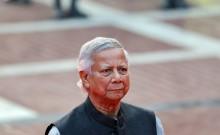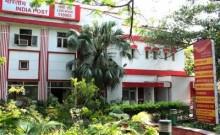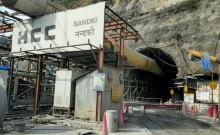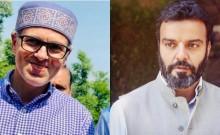Pakistan's 13th general election since Independence is due on July 25, 2018, amid serious allegations of massive pre-poll rigging, horse-trading and interference from the judiciary and the infamous establishment.
However, the good sign is that the country, for the first time, has seen two elected governments finishing their terms after decades of dictatorship. Former prime minister Mian Muhammad Nawaz Sharif, who was the premier three times, has not only been dismissed but lost his right to lead the largest political party in Pakistan, the Pakistan Muslim League (Nawaz) (PML-N), after the Panama papers verdict.
The other Sharif in line?
Shahbaz Sharif, Nawaz Sharif's brother and a favourite for the premiership, has established his credentials with his work in Punjab and wants, 'no conflict with any state institutions' opposite to Nawaz. Meanwhile, Pakistan Tahreek-e-Insaaf led by former cricketer Imran Khan is said to be favoured by the gods (read: establishment) as a large chunk of electable leaders from PML-N 'has joined it.

While the upcoming elections point to political stability, Pakistan has suffered a serious economic meltdown and possible bankruptcy thanks to Nawaz Sharif's economic policies. The situation is such that the former minister for finance, Ishaque Dar, is an absconder now. The ATMs are seeing a run on them and Pakistan is the newest victim of the Chinese 'debt trap' like Sri Lanka and Argentina.
The previous PML-N government initiated mega projects to boost its credentials, primarily in Punjab province (their turf) and since coming to power in 2013, it borrowed record $35 billion, taking the national debt to $95 billion, fully knowing the risks involved. The careless borrowing backfired, leaving Pakistan in one of the worst economic crisis in decades.
China to the 'rescue'
On top of it, Pakistan's forex reserves fell to $9.66 billion in the last week of June 2018, from $16.4 billion in May 2017. The all-weather friend, the Chinese, loaned a billion dollar immediately to save the economy. However, the troubles are only beginning. Pakistan would need to raise $38 billion just to repay $20 billion of the principal loan and to improve import cover whereas foreign debt burden would increase by $18 billion i.e 6 percent of the GDP.
Pakistan's new government would eventually have to go to the IMF for a bailout package. Does this mean there would be an economic collapse? Not really, but any new government in Pakistan would be engaged in fire-fighting domestically and would have little time for external affairs.
Pakistan would need to raise $38 billion just to repay $20 billion of the principal loan and to improve import cover whereas foreign debt burden would increase by $18 billion i.e 6 percent of the GDP.
On another front too, Pakistan has suffered. It had no full-time foreign minister as Nawaz Sharif handled the portfolio during his tenure. Recently the Financial Action Task Force (FATF) formally placed Pakistan on the greylist due to 'strategic deficiencies' in its anti-money laundering and terrorism financing regime a major setback for the country. However, Chinese foreign ministry spokesperson Lu Kang opposed the decision, saying: "Pakistan's efforts in combating terrorism have won not only China but also many countries in the international community."
Pakistan's forex reserves fell to $9.66 billion in the last week of June 2018, from $16.4 billion in May 2017.
While the former government led by Nawaz Sharif and PML-N failed to deliver, the often portrayed trouble-makers, Pakistan Army, had quietly worked on foreign policy with stakeholders and had improved relations with Afghanistan and even the Americans by convincing the Afghan Taliban to reach a deal with Kabul.
On the Indian front, the hawkish Pakistani military had reached out to New Delhi with talks and offering better coordination on an operational level. Pakistani Military chief Gen. Bajwa had famously said he welcomed "Indian participation in Pakistan's flagship infrastructure project, the China-Pakistan Economic Corridor (CPEC)". The Indo-Pak dialogue will start soon too, because of the back-channel talks. The upcoming government in Pakistan would also need to fill the vacuum created by PML-N and actively work on foreign policy, taking over from the military or work up a joint strategy, which is a Herculaneum task.
![Pakistan Prime Minister Nawaz Sharif [Representational image] Nawaz Sharif,](https://data1.ibtimes.co.in/en/full/656595/nawaz-sharif.jpg?h=450&l=50&t=40)
With discussions among major stakeholders and party leaders going on, no one is really ready to take up the burden and there's talk of a national government with tight control by judiciary and military. There is massive censorship in Pakistan with regard to 'strategic issues' and the largest English daily, Dawn, faces immense pressure from country's establishment as it reports on national issues.
Whatever the outcome of Pakistan's 13th elections, the new government and the country would face massive challenges domestically as well as externally, and the chances of the government completing its tenure remain weak.
(Ali K.Chishti is a security and political analyst based in Pakistan who could be reached at akchishti@hotmail.com)

















